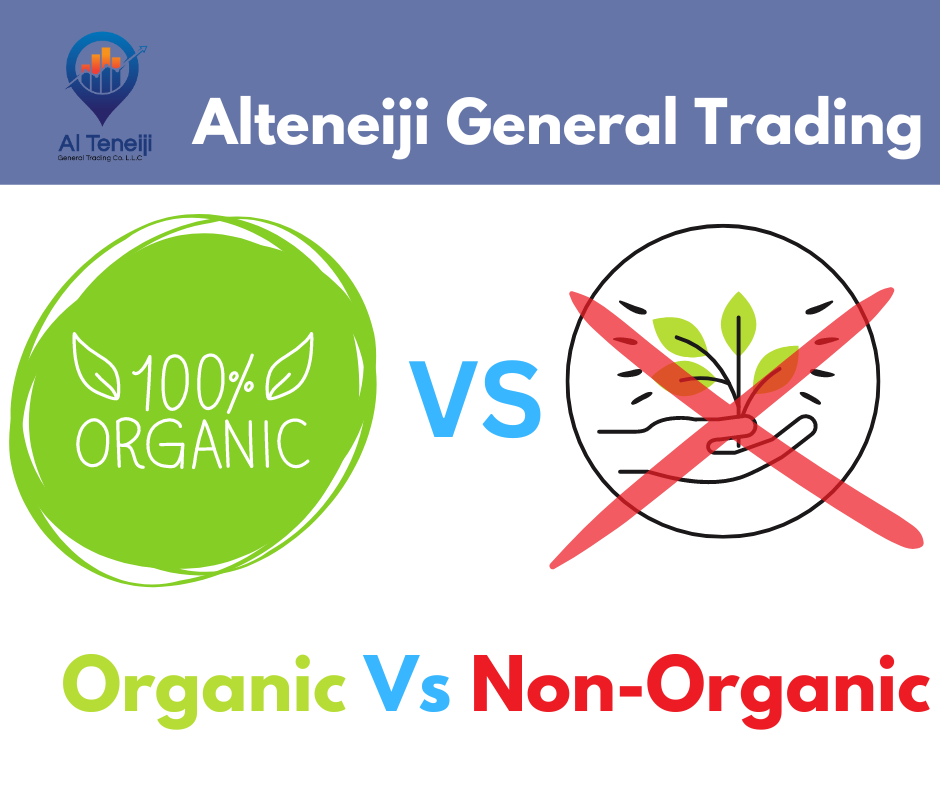
Organic vs. Non-Organic Vegetables
Growing more and more popular is the argument between organic and non-organic veggies in today’s world of health-conscious living. Knowing the difference between these two kinds of produce is vital since natural and sustainable options are becoming more and more important to customers. People may make more informed decisions about what they put on their plates if they are aware of the subtleties of organic agricultural practices and how they affect the quality of veggies.
The Organic Aura:
Produced using natural agricultural methods, organic veggies frequently have unique qualities that distinguish them from their non-organic counterparts. Their inherent sheen is one of their most striking characteristics. In contrast to non-organic veggies, which could be sprayed with chemicals to improve their appearance, organic produce keeps its natural radiance, which is a reflection of how carefully it was grown.
Imperfections as Indicators:
Vegetable identification may depend on accepting flaws. While produce that isn’t organic usually looks perfect, organic vegetables can have minor flaws like size variances. These flaws validate the legitimacy of organic farming methods by indicating that there was no chemical intervention throughout the growth phase.
The Taste of Authenticity:
In addition to visual signals, eating organic veggies can offer insightful sensory experiences. Many people claim that when compared to non-organic produce, organic produce has a better flavor and scent. The inherent minerals and chemicals found in organically cultivated veggies are thought to be responsible for this enhanced flavor profile. Chemical additions in conventionally farmed produce frequently degrade these natural components.
Size Does Matter:
Vegetables can also be distinguished from non-organic varieties based on size. Since organic cultivars don’t include artificial growth accelerators, they may be smaller or have an uneven form. Organic vegetables celebrate the inherent variances in agriculture operations, while non-organic vegetables tend to tout consistency in size and look. Instead, organic choices embrace diversity.
Beyond the Plate:
Selecting organic food involves more than just consumption; it involves a comprehensive approach to sustainability and health. Organic agricultural practices contribute to long-term ecological balance by placing a high priority on soil health, biodiversity, and environmental preservation. Choosing organic vegetables is a way for customers to support a system that takes care of the environment and people, which is in line with ethical consumption and conscientious living principles.
The Empowerment of Choice:
When it comes to organic or non-organic vegetables, information truly is power. When people know what makes organic produce different and what its advantages are, they can confidently browse supermarket aisles and make decisions based on their moral convictions and health objectives. Every decision you make becomes a deliberate step towards a better, more sustainable future, whether you’re enjoying the earthy perfume of freshly gathered greens or the vivid taste of an organic tomato.
Understanding the distinctions between non-organic and organic veggies requires a combination of sensory perception, observation, and knowledge of agricultural techniques. Through embracing the natural attributes of organic produce and appreciating the importance of sustainable agriculture, customers may foster a more meaningful relationship with their food and help to maintain a healthy ecosystem. Every vegetable becomes more than just a meal on the path to a healthy lifestyle—rather, it represents deliberate selection and conscientious consumption.

Lovart AI Agent is a game-changer for designers who want to blend creativity with AI efficiency. Its tri-modal interface feels intuitive, and the real-time preview feature is a huge time-saver. Definitely worth the wait! Lovart AI Agent